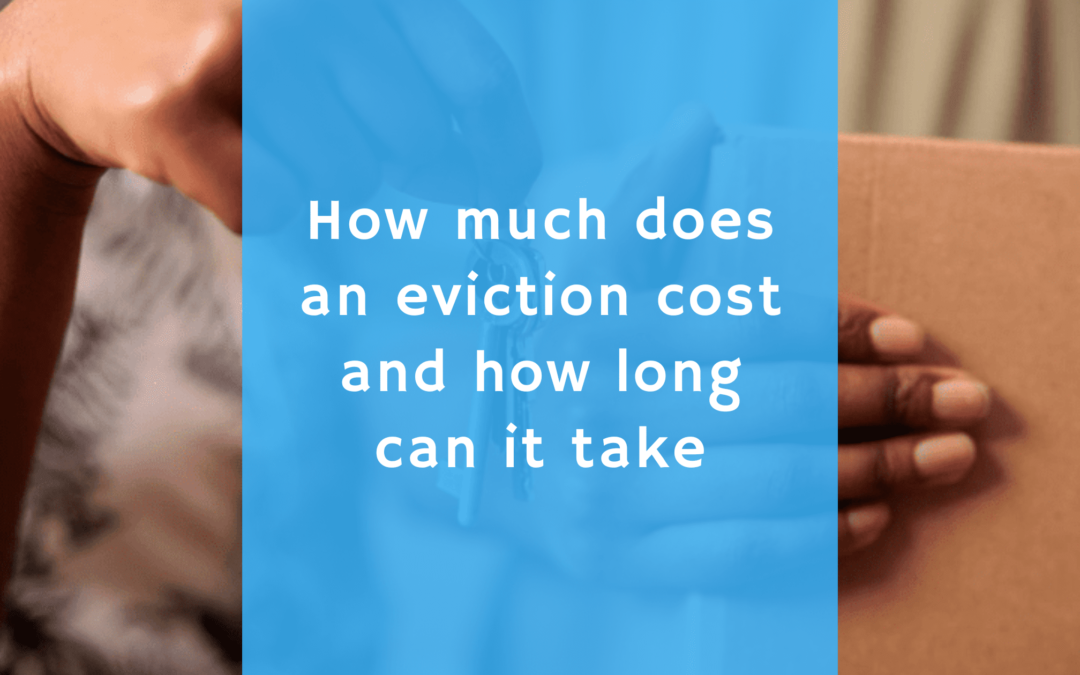- Evicting a defaulting tenant from a property is daunting, extremely costly and painful process that oftentimes results in high monetary and psychological damages.
- A thorough understanding, creating trust and transparency between a landlord and/or insurer and a tenant is vital.
- Tenant screening powered by machine learning and vast amounts of data are great levers to help foster that trust and avoid these painful processes from the very beginning.
The eviction of a rented property is the process by which the landlord demands the tenant to deliver the property (house, premises, apartment) back because of a default in rent payment or material rent agreement contractual breach. Additionally, the landlord will typically request late rental payments, utilities due, administration fees, damages, etc.
Evicting a tenant can be a total nightmare for a property owner. The eviction process is extremely complex from a legal perspective, it is very lengthy, and almost always results in a huge financial loss in rent dues, legal bills, and damage repair costs.
Eviction is generally a last resort option, where a tenant has consistently missed rent payments and all attempts to collect due amounts have failed, or other extreme situations, such as property damage and/or breach of contract.
In this post, we intend to bring clarity to the cost and length of the eviction process in Colombia. We hope that by the end of this post, you understand how undesirable and costly going through an eviction is, and how important it is to perform a robust tenant screening. Technology tools such as SmartRentScore leverage cutting edge technology and Artificial Intelligence to perform tenant screening and mitigate default and eviction risk.

How does the process to evict a tenant actually work?
This process begins when a problem arises between the landlord and the tenant and, as we said before, it is usually because the latter stops paying the rent.
Extrajudicial process through a conciliation center
The process of eviction of rental property is not only a case that can be brought before the courts, since in Colombia there are conciliation centers where extrajudicial proceedings can be opened.
In the conciliation process, the landlord can request the eviction of the rental property, the payment of the rental fees owed, the delay in them, the payment of the public services owed, administration fees, costs within the process and other charges for damages to the landlord or the immovable property it occupies.
This out-of-court process can be carried out when the rental agreement was signed verbally or in writing, if the type of contract signed to make the obligation enforceable is established in the request submitted.
Is there a cost for the extrajudicial process in a conciliation center? No, as long as it is brought before a public conciliation center such as those of the Universities. However, there are private conciliation centers that charge according to the amount of each case.
Do you need a lawyer? To file the conciliation request, a lawyer is not needed either in the public conciliation centers or in the private conciliation centers, however, if you want to attend with a lawyer, you can do so.
This is where Smart Rent Score comes in. Our ML-based algorithm for tenant discovery, implemented via cloud APIs.

Judicial process
Generally, people arrive with the intention of reconciling, but unfortunately, many times it is impossible to reach an agreement that both are willing to accept.
If it is not resolved in the conciliation center, a judicial process should be opened, both for the executive process to collect the debt, and for the process of eviction of the tenant.
In the lawsuit or process for eviction of rented property, it is not necessary for the plaintiff to first attempt conciliation as a requirement for the lawsuit to be procedural.
This is expressly stated in article 384 of the general code of the process:
“The plaintiff will not be obliged to request and process the out-of-court conciliation hearing as a requirement for the proceeding of the claim.”
The property eviction process is regulated by article 384 of the general process code that sets the rules that must be followed to process the property eviction claim.
The landlord can initiate a claim for the eviction of the property, and the tenant will not be able to provide his defense in the case until he has paid before the court what he owes or presents evidence that he has paid.
This is determined by article 384 of the general code of the process, which in the pertinent part states:
“If the claim is based on non-payment of rent or public services, administration fees or other concepts to which the defendant is obliged by virtue of the contract, he will not be heard in the process until he demonstrates that he has consigned to court orders the total value that, according to the evidence provided with the claim, have the fees and other concepts owed, or failing the above, when presenting the payment receipts issued by the landlord, corresponding to the three ( 3) last periods, or if it were the case, the corresponding ones of the appropriations made in accordance with the law and for the same periods, in favor of that one.»
And not only must he pay the accused outstanding amount, but also what is caused during the judicial process, as provided in article 384 already cited:
“Whatever the grounds invoked, the defendant must also consign in a timely manner by order of the court, in the judicial deposit account, the fees that are caused during the process in both instances, and if he does not do so, he will cease to be heard until he presents the respective title of deposit, the receipt of the payment made directly to the landlord, or the consignment made in executive process. »
According to Erika Bedoya, an experienced property lawyer, “if the defendant refuses to pay any of the values approved in the order admitting the lawsuit, the plaintiff should have requested precautionary measures for the embargoes to proceed.”
The landlord may request within the process the provisional eviction of the rental property where an inspection of the real estate will be carried out and if it is deteriorated it can be returned immediately to the landlord, but the landlord will not be able to rent it until a final judgment is given on the eviction of the property.
According to what the lawyer Erika Bedoya tells us, in Colombia, an eviction process can take between 1 year and 2 years, depending on the complexity of the matter and the duration of the lawsuit process. And why is the process so long? Due to the Colombian judicial congestion.

The breakdown of costs
The costs in an eviction process are usually court costs, legal fees for lawyers, lost rent or damage costs.
Legal fees
Due to the complicated nature of eviction cases, it is recommended that you hire an attorney to assist you.
It will depend on the law firm chosen by the tenant, but for the restitution of the property it can be 3 minimum monthly wages or more, and for the executive process 1 to 2 minimum monthly wages + 20% of the amount recovered.
The new monthly minimum wage in Colombia from January 1, 2023 is 1,160,000 pesos (around US$242).
Court costs
Court costs: these costs always depend on the assigned judge. According to the lawyer Erika Bedoya, the usual thing is that the judge establishes an approximate cost of 400,000 pesos, 500,000 pesos or a minimum wage.
Lost rent payments
To guarantee the payment of what the tenant owes, the landlord may request that precautionary measures be decreed against the tenant, such as the seizure of their assets or rights.
Precautionary measures can be requested before serving the claim to prevent the defendant from becoming insolvent.
The precautionary measures not only cover the payment of the rent and public services, but also possible compensation for damages that the landlord may suffer, as in the case of the tenant who destroys the property before returning it to its owner.
Property damage
If you’re lucky and the tenant has respected the property and caused no damage, you’ll just have to invest in cleaning costs to get the house ready for the next tenant.
Also, a cost that you will always have to assume will be the change of locks. Because after an eviction process it would be dangerous to keep the same lock on the keys that the tenant had.
Beyond these two “almost mandatory” expenses, it is difficult to pin down the exact amounts due to the many variables that can appear. Has the tenant caused damage? How big is the damage? Apart from damage to the home itself, such as floors and walls, has it caused damage to furniture? Are these damages insured?
Psychological cost
But they are not all monetary costs, there is also a very high cost in tension and stress. Time is money and the longer the eviction process takes, the less time you will have to devote to other matters.
Apart from other cases such as the owner using the rental income to pay the mortgage on that home. This can cause enormous nervousness as the homeowner may have no way to pay the mortgage or have to fall back on his own savings.
There are many possible cases in which stress can be tremendously high.

Avoid evictions before they happen
The eviction process can be avoided by several means. But without a doubt, the best mitigation strategy is to carry out a meticulous selection and review of potential tenants upfront. As an insurer, you will be able to reduce the risk of choosing potential delinquent tenants or those who have had problems in previous rentals.
We have a solution to automate tenant screening, capture all patterns, and do so very fast (3-5 second) and through a scalable architecture.
SRS has consistently shown to reduce default by 40 to 70% on rental contract insurance coverage portfolios.
Whether you use tenant screening with our SmartRentScore algorithm or another screening service, it’s important to request an eviction report as part of your tenant screening package.
When you think about the huge amount of money you could avoid having to spend on an eviction, a tenant screening service is a prudent and very modest investment.
Even so, and taking all possible precautions, there may still be an occasion when even the most careful landlord must evict a tenant. However, advanced tenant selection is your best bet to avoid finding yourself in a complicated and expensive situation.

